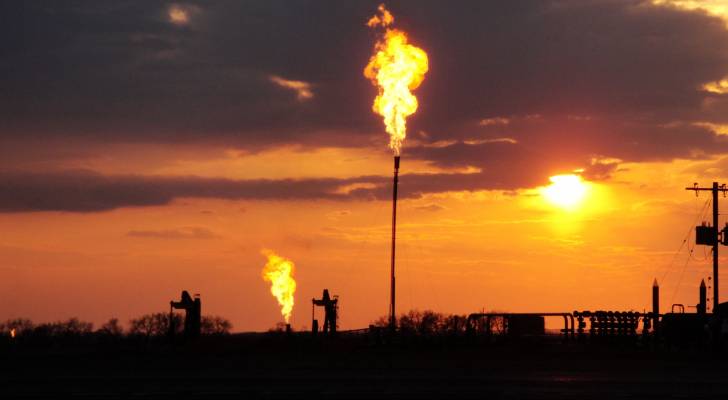(Credit: CIRES and NOAA)
Saudi: Arab Group will reject any deal that targets fossil fuels
Saudi Arabia warned Thursday that the Arab Group would reject any UN climate deal that goes after fossil fuels, Agence France-Presse (AFP) reported.
"The Arab Group will not accept any text that targets any specific sectors, including fossil fuel," Albara Tawfiq, a Saudi official, told delegates at COP29 talks in Azerbaijan.
Earlier this week, Middle East Eye (MEE) reported that Saudi Arabia has drawn sharp criticism for its role in slowing progress on transitioning away from fossil fuels.
Last year, Saudi Arabia joined COP28 nations in pledging to phase out fossil fuels from energy systems. However, its actions during this year’s summit in Baku suggest a retreat from those commitments, according to diplomats familiar with the talks.
The delays are seen as a significant challenge to aligning global climate efforts with the Paris Agreement's target of keeping warming below 1.5°C.
Hanen Keskes of Greenpeace MENA stated that Saudi Arabia was reportedly blocking the Mitigation Work Programme (MWP), a channel of the talks focused on the shift away from fossil fuels.
"There’s been generally very slow progress across the different tracks," she said.
Saudi representatives have reportedly argued that the proposed text on energy transition misrepresents the voluntary nature of commitments under the Paris Agreement. However, experts dismissed this claim, noting that the mitigation program explicitly states it is non-binding and non-punitive.
Saudi Arabia’s tactics are not the only obstacles at COP29. Negotiations around climate finance—funding from wealthy nations to support developing countries in mitigating and adapting to climate change—have also stalled.
Developing nations, including Saudi Arabia, have called for annual funding targets ranging from USD 1 trillion to USD 1.3 trillion, arguing that meaningful action on emissions is impossible without financial backing.
Developed nations, however, have resisted these demands, offering no concrete figures for negotiation.
Adding to the gridlock, Saudi Arabia has lobbied for the new funding goal, referred to as the "new collective quantified goal" (NCQG), to rely on public rather than private investments. Critics have called this contradictory, pointing out that the Kingdom has simultaneously opposed efforts to create investment dialogues in other parts of the summit.
Observers fear the combination of financial disputes and Saudi resistance could undermine the summit's outcomes. By invoking procedural delays and challenging core components of the energy transition, Saudi Arabia has emerged as a major roadblock, critics say.
“Their approach reflects a deeper desperation to protect their economic model,” Andreas Sieber, the associate director of policy and campaigns at anti-fossil fuel group 350.org, told MEE.




